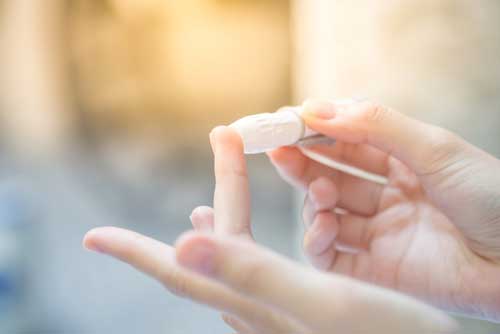The first-line drug for Type 2 diabetes is metformin. It’s an older medication that is relatively safe.
But it doesn’t work for everybody.
So these patients turn to other classes of drugs to control their blood sugar. Typically, doctors prescribe one of three types of medications:
- DPP-4 inhibitors. These include sitagliptin (Januvia), saxagliptin (Onglyza), alogliptin (Nesina), and linagliptin (Tradjenta).1
- SGLT-2 inhibitors. These include ertugliflozin (Steglatro), canagliflozin (Invokana), empagliflozin (Jardiance), and dapagliflozin (Farxiga).2
- GLP-1 agonists. These include liraglutide (Victoza, Saxenda), exenatide (Byetta, Bydureon), dulaglutide (Trulicity), and semaglutide (Ozempic).3
Researchers from the Imperial College of London wanted to know which works best.
So they conducted an in-depth analysis of over 230 drug trials. All of them tested the three types of diabetes treatments in patients for whom metformin doesn’t work.
One Type of Diabetes Drug Doesn’t Protect Against a Heart Attack
The biggest risk of having Type 2 diabetes is dying from heart disease. Nearly 70% of people over 65 with diabetes die from some form of heart disease.
The researchers looked at whether patients taking these drugs had a lower risk of heart death. They were able to compare the three medications against each other, a placebo, or no treatment at all.
All three effectively lowered blood sugar levels. But only two of them – SGLT-2 inhibitors and GLP-1 agonists – also reduced the risk of heart death when compared to a placebo or not taking a medication.
The study showed that SGLT-2s lowered heart attack deaths by 20%. GLP-1s reduced them by 18%.4
But DPP-4 inhibitors had no effect on heart deaths. In other words, if you take them, they won’t protect you from the biggest killer of diabetics.
Dr Sean Zheng is a researcher at Imperial College. He led the study.
“The three drug classes assessed here are being increasingly prescribed,” he said. “Yet until now there have been no clinical trials studying how these drugs compare to each other, and which type of drug could be the best option.”5
The researchers could not determine why DPP-4 inhibitors didn’t decrease deaths from cardiovascular events. But they work differently than other diabetes drugs.
Unlike other drugs that lower blood sugar levels by encouraging sugar to be excreted by the body, DPP-4 inhibitors increase insulin levels. This may be less effective at protecting the heart.6
The research recently was published in the Journal of the American Medical Association.
If you are taking a DPP-4 inhibitor, show this article to your doctor. Ask about switching to a SGLT-2 inhibitor or a GLP-1 agonist. Switching may save you from a heart attack.
5 Safe, Natural Blood Sugar Solutions
Better yet, try to lower your blood sugar levels without drugs. Weight loss and exercise are two proven ways to reverse diabetes. Certain foods and supplements can also be effective:
- Okra: The vegetable is a potent anti-diabetes agent. The seeds are rich in alpha-glucosidase inhibitors. They stop starches from converting to sugar in your bloodstream. Cook it by lightly steaming or grilling it. Overcooking makes it slimy. You’ll also lose its vitamin content.
- Garlic: It can have the same effect as metformin for some people. You’ll get the most benefit from eating raw garlic. You can also take a natural garlic extract supplement.
- Walnuts: One study found that eating walnuts lowered subjects’ diabetes risk by 24%. They’re high in healthy fats, protein, and antioxidants. Eating the nut raw gives you the most benefit. Don’t discard their waxy outer skin. That’s where most of the antioxidants are.
- Coffee: A recent study found that people who cut their coffee intake by one cup or more a day were at 17% greater risk for Type 2 diabetes. But people who increased their coffee consumption by one or more cups each day lowered their risk by 11%.
- Vitamin D. University of California researchers found that people with high levels of vitamin D lowered their risk of Type 2 diabetes by 80%. The study found that those with a daily intake of 5,000 IUs of vitamin D had the most protection. Make sure you opt for the D3 form. It is more easily absorbed than D2.7
Editor’s Note: If you’re worried about your blood sugar, there’s something else you should know… Discover the seed that lowers fasting glucose levels by up to 40%… The ancient Turkish secret for preventing diabetes… And the delicious treat that controls blood sugar – and can help take an inch off your waist.
Get all the details HERE.
Like this Article? Forward this article here or Share on Facebook.
References:
1 https://www.drugs.com/drug-class/dipeptidyl-peptidase-4-inhibitors.html
2 https://www.drugs.com/drug-class/sglt-2-inhibitors.html
3 https://www.drugs.com/drug-class/incretin-mimetics.html
4 https://medicalxpress.com/news/2018-04-diabetes-drug-death.html
5 https://www.imperial.ac.uk/news/185771/diabetes-drug-reduce-risk-death/
6 https://www.imperial.ac.uk/news/185771/diabetes-drug-reduce-risk-death/
7 https://www.institutefornaturalhealing.com/2018/05/one-vitamin-can-stop-diabetes/

